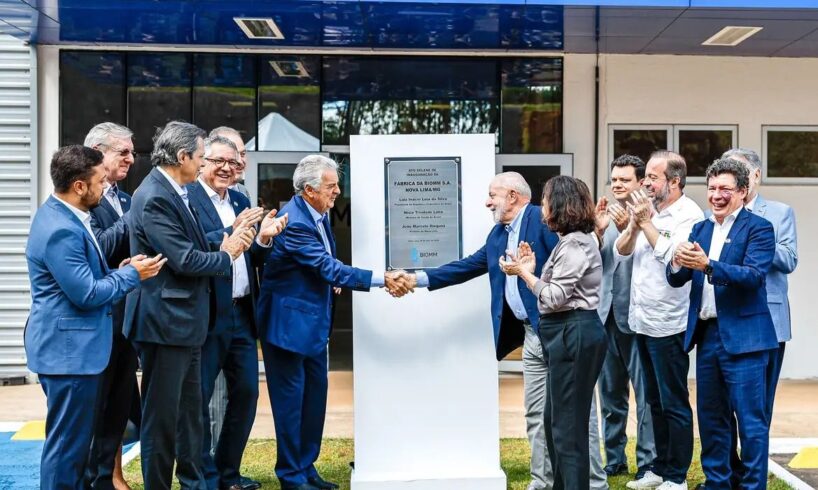
Brazil resuming local production of insulin after 20 years
Saturday, July 12th 2025 – 10:21 UTC
razil’s Health Ministry received the first batch of insulin produced through the Partnerships for Productive Development (PDP) program on Friday. The initiative is part of the National Strategy for the Development of the Health Economic-Industrial Complex and aims to resume manufacturing the drug entirely in Brazil.
The scientific development was made possible through technology from the Indian pharmaceutical company Wockhardt, after an agreement with the public laboratory Fundação Ezequiel Dias (Funed) and the Brazilian company Biomm. Minister Alexandre Padilha participated in the reception of 207,385 units of the drug, including 67,317 vials of regular insulin and 140,068 vials of NPH insulin, at Biomm’s plant in Nova Lima, Minas Gerais.
“After more than two decades without producing human insulin, Brazil is resuming production to supply the Unified Health System and contribute to the health of the population,” Padilha said. “This is BRICS in action, changing the lives of the Brazilian population and generating jobs, income, and technology here in Minas Gerais,” he added, referring to the economic bloc that brings together large countries from the Global South, including India.
According to the ministry, after the total transfer of technology, Brazil will produce 50% of the demand related to NPH and regular insulins in the country’s health network, known as SUS. “An initiative like this assures patients that, regardless of any crisis, such as the one we are experiencing during the pandemic, the country has sovereignty in the production of this very important medicine,” Padilha emphasized. About 10% of the Brazilian population has diabetes, and some of these people need to use insulin.
The initiative involved an investment of R$142 million (US$25.53 million) in the acquisition of the technology, with 350,000 people with diabetes expected to benefit. The contracts provide for the delivery of 8.01 million units of insulin, including vials and pens, to the public health system in 2025 and 2026.
The technology transfer process will begin after the initial acquisition, as provided for in the PDP guidelines. At the end of the transfer, the production of the drug will be entirely Brazilian, with Funed and Biomm trained to manufacture the drug in the country and supply the SUS autonomously.
In PDPs, public institutions and private companies share responsibilities for the national production of the active pharmaceutical ingredient (API) and the product covered by the PDP, in a process of reverse technology transfer. The SUS offers comprehensive care to people with diabetes, from diagnosis to appropriate treatment, according to each patient’s clinical condition.
Insulin is a hormone that regulates blood sugar levels in the body. It is used to treat diabetes, a condition in which the body is unable to produce enough insulin or effectively use the insulin it produces. There are several types of insulin, including human insulin and insulin analogues, which are designed to mimic the natural insulin produced by the body. Insulin is typically administered via injection or pump, and is essential for managing blood sugar levels and preventing complications associated with diabetes.
In Brazil, it is estimated that over 16 million people have diabetes, with around 7 million requiring insulin therapy. The country’s public health system, SUS, provides comprehensive care to people with diabetes, including access to insulin and other essential medications. The resumption of insulin production in Brazil is expected to improve the availability and affordability of this life-saving medication, particularly for those who rely on the SUS for their healthcare needs. By increasing domestic production, Brazil aims to reduce its reliance on imported insulin and improve the overall health outcomes for people with diabetes.





